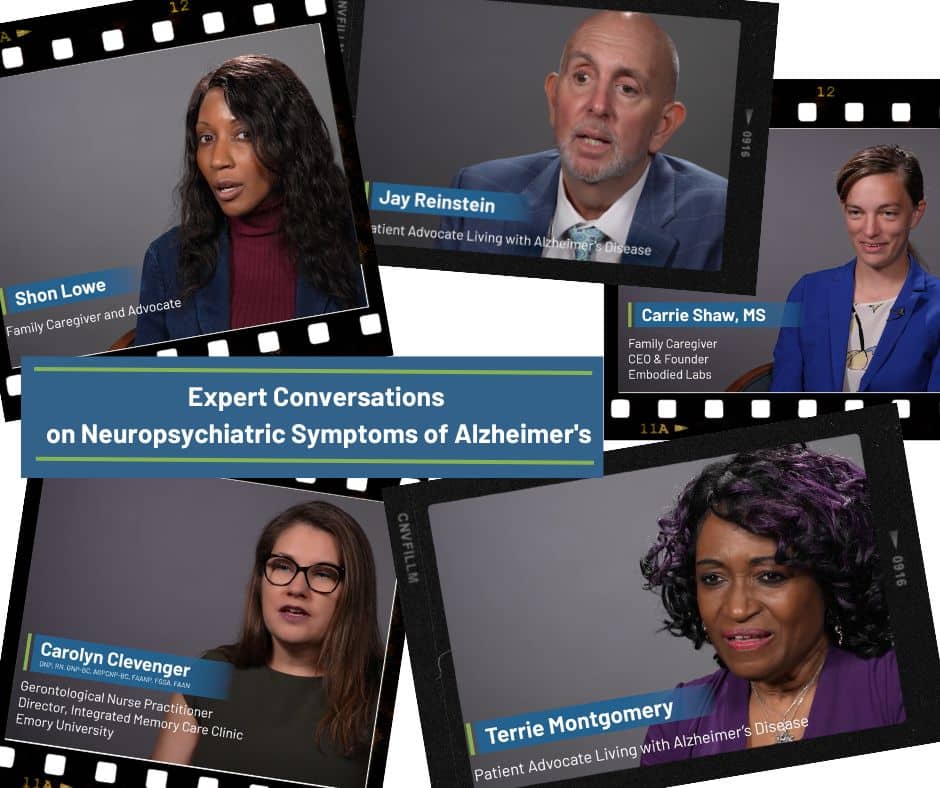In 2020, six million Americans were living with Alzheimer’s disease – the most common form of dementia and the 6th leading cause of death in the United States. While young people may get Alzheimer’s disease, symptoms typically appear after the age of 60, and the risk continues to increase with age. Because the symptoms can be hard to distinguish from other causes, more than 60 percent of Alzheimer’s cases in patients over 65 years old go unrecognized.
That’s why UsAgainstAlzheimer’s created BrainGuide: a free platform that provides information and resources to take the best next steps in managing their own or a loved one’s brain health. BrainGuide is easy to access, and provides automated, confidential memory questionnaires. Questionnaires are offered in English or Spanish and can be taken by yourself or as a caregiver.
Brooks Kenny is the Vice President of Consumer Engagement and Partnerships, and General Manager of BrainGuide at UsAgainstAlzheimer’s. She’s working to spread the word about this important tool for patients and their families. Brooks took a few minutes to answer some common questions that USAgainstAlzheimer’s gets about the BrainGuide.
What makes BrainGuide such an important tool?
BrainGuide was created to revolutionize the Alzheimer’s movement by expanding brain health awareness and helping people to take meaningful action.
We found through extensive market research that people have historically struggled to find brain health or Alzheimer’s information relevant to them. Many have also been hesitant to raise the topic with their doctor. That’s why BrainGuide tailors brain health education and resources in a way that is easy to access and act on.
Today’s BrainGuide is just the start. We’re committed to scaling up BrainGuide overtime to provide even richer tailored resources and support.
What do you mean by brain health and how can I protect it?
Brain health is about making the most of your brain and taking action to reduce the risk of cognitive decline as you age.
You have the power to take charge of your brain health. Regardless of your age or background, there are simple steps you can take to help lower your risk of cognitive decline and Alzheimer’s disease. Recent research has shown that Alzheimer’s prevention is possible. By making adjustments to your daily routine, you can help improve and maintain a healthy brain. Some of these changes are as simple as eating healthfully, staying active and socializing with friends and family.
On the BrainGuide site, we have an entire resource page dedicated to keeping your brain healthy. There, you can find informational one-pagers and a robust resource database of trusted information from other globally recognized Alzheimer’s and brain health organizations.
Want to take further action? Sign up for our 30-Day Brain Health Challenge, which will share fun and easy-to-incorporate brain health challenges to your inbox daily, for a whole month. Sign up on your own, or pledge to take the challenge with a friend or family member!
I don’t have Alzheimer’s disease, but I suspect a loved one might. Can I use it on behalf of them?
Yes. We offer two memory questionnaires—one that can be self-administered, and one to take on behalf of someone else. Both questionnaires are based on tools used in the clinical setting today and are validated by medical experts.
If you would rather get right to the resources, I’d recommend browsing our Alzheimer’s Early Signs & Symptoms page, or our Resources for Alzheimer’s Caregivers page.
As someone who once served as a caregiver for a family member with Alzheimer’s disease, I understand how stressful of an experience it can be to figure out the best next steps and a path forward. When creating BrainGuide, we wanted to make it a place where people could turn to wherever they are within their own or a loved one’s brain health journey.
Can I use BrainGuide as a diagnosis?
BrainGuide is not intended to diagnose or make treatment recommendations regarding Alzheimer’s or any other disease. BrainGuide can guide you toward information and resources that help inform the best steps you or a loved one can take.
Once I get my results, how can I talk about them with my doctor?
BrainGuide aims to provide you with the knowledge and confidence to ask your doctor about brain health and memory for you and/or your loved one. When you have completed the questionnaire, you are provided a link to tailored resources based on your responses, as well as the option to receive a summary email that you can print out and take to your doctor.
The most important part of a successful doctor’s office visit is clear communication. Check out our Communicating with Your Doctor resource page for further tips.
I don’t have a computer at home, can I still access BrainGuide?
Yes! You can access the BrainGuide questionnaire and all resources via your mobile device. You can also take the questionnaire by dialing in on a cell or landline – 855-272-4641. In addition, many local libraries and community centers offer free computer use.
How do I get started?
You can take the first step today by visiting www.mybrainguide.org, or by calling 855-BRAIN-411 (855-272-4641).





